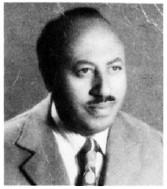- Volume 57 , Number 2
- Page: 552
Zerihun Desta

Zerihun Desta, one of Ethiopia's pioneers in the fight against leprosy, passed away suddenly on 20 November 1988, at the age of 55.
Zerihun devoted most of his professional life to the cause of leprosy, particularly to leprosy control. He received his training as Health Officer at the Public Health College in Gondar, Ethiopia, graduating in 1957. From 1957 to 1959 he was a member of a World Health Organization team involved in malaria control and in several training activities. From early 1959 until 1962 he worked at the leprosy hospital in Addis Ababa, where he was in charge of the outpatient clinic and supervised various medical activities. Through hard work he increased his knowledge of leprosy and dermatology.
In 1962, he was transferred to the Gojjam region, where he was in charge of a major health center, a leprosy hospital, and the leprosy control services in the whole region. From 1964 until 1967 he worked as Chief Leprosy Control Officer in the National Leprosy Control Programme. For a short while in 1967 he was a medical representative for a pharmaceutical company. Upon request by the Ministry of Public Health, he rejoined the government services in January 1968. Since then, he worked in the field of leprosy in several senior positions. His last post was as Deputy Director of the ALERT Leprosy Control Programme.
Zerihun obtained a Master's degree in Public Health in 1972 in Michigan, U.S.A., a Master's degree in Health Personnel Education in 1981 in New South Wales, and he followed a training course in teaching primary health care in 1986 in Liverpool.
Zerihun showed a genuine interest in and affection for both the patients and his staff. These natural attitudes toward patients and staff contributed much to the success of the services. He worked under very difficult conditions where his devotion to duty became patently obvious. His great strength lay in his ability to work with people and to implant in them some of his own dedication to the welfare of the leprosy patients and the fight against the disease.
Since the establishment of ALERT as an international training institute, he was one of the leading teachers during the international and national training courses. Both during classroom teaching and during visits with trainees to the rural areas, he exhibited noteworthy qualities as a teacher. On numerous occasions trainees expressed their deep appreciation and respect for his genuine interest in the patients.
Besides being a very good and enthusiastic teacher, he was a real field man. During a speech on the occasion of the 25th anniversary of Zcrihun's service in leprosy, in June 1984, Mr. B. Johanncsscn, Executive Director of ALERT at that time, expressed his appreciation as follows: "Even though research is necessary for the understanding and the strategy in the fight against leprosy, nothing can be achieved unless we have frontline soldiers to do the fighting on the spot. It is in this frontline that Ato Zerihun has dedicated his 25 years of service and it is in this capacity that we all congratulate him with his anniversary."
Zerihun was in the frontline as regards the implementation of multidrug therapy. He was convinced that this was the best treatment for the patients.
We salute him as a very loyal colleague. His support and friendship have been much appreciated by all who worked with him. Zerihun was always there to give advice, not only in professional matters but also in personal matters. He had a deep faith in the Almighty God and, although he was quite often hurt, maintained a deep and broad confidence in people.
Our feelings of sympathy go to his wife and eight children.
- Marijke Becx-Bleuminck